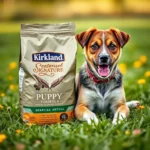
Dog nutrition is an integral aspect of pet ownership that directly impacts the health and well-being of our furry friends. As dog owners, we often wonder about what treats we can share with our pets, and one common question arises: can dogs eat bacon? This savory food is a favorite among humans, but is it a suitable addition to a dog’s diet? Let’s dive into the world of dog nutrition and uncover the implications of including bacon in their meals.
Understanding Dog Nutrition
The Basics of Dog Nutrition
To determine whether dogs can safely enjoy bacon, it’s essential to understand the fundamentals of dog nutrition. Dogs require a balance of several key nutrients:
- Proteins: Vital for growth, repair, and maintenance of body tissues. They should make up a significant portion of a dog’s diet.
- Fats: Provide energy and help with the absorption of fat-soluble vitamins. Healthy fats are crucial for a shiny coat and overall health.
- Carbohydrates: While not essential, carbohydrates can serve as an energy source and provide fiber for digestive health.
- Vitamins and Minerals: These nutrients support various bodily functions, including immune response, bone health, and metabolic processes.
Each nutrient has a role in promoting a dog’s health, making it important to ensure they’re receiving a well-rounded diet.
Different Types of Dog Food
When considering what to feed our dogs, we have several options:
- Commercial Dog Food: This includes dry kibble and wet food formulated to meet a dog’s nutritional needs. The major advantage is convenience, but it’s essential to choose high-quality brands.
- Homemade Diets: Some owners prefer to prepare meals for their dogs at home, which can offer control over ingredients. However, this requires careful planning to ensure that the diet is balanced.
- Raw Diets: This approach includes feeding dogs raw meat, bones, and organs. While some swear by the benefits, it poses risks regarding bacteria and nutritional balance.
Importance of a Balanced Diet
A balanced diet for dogs should incorporate all essential nutrients in the right proportions. Poor nutrition can lead to various health issues, including obesity, dental problems, and developmental disorders. To keep your dog healthy, ensure that their diet is varied and meets their specific needs based on age, breed, and activity level.
The Appeal of Bacon for Dogs
Why Do Dogs Love Bacon?
One of the reasons dog owners often ask can dogs eat bacon is due to the intense smell and flavor of bacon, which can be irresistible to dogs. This savory treat is rich in fat and protein, making it highly appealing. Dogs have a keen sense of smell, and the scent of bacon can trigger excitement and even a desire to beg for more.
Bacon as a Reward or Training Tool
Bacon is frequently used as a reward or training tool due to its strong aroma and taste. It can motivate dogs to follow commands or perform tricks, making it a popular choice among trainers. However, relying solely on bacon may not be ideal. There are healthier alternatives, such as small pieces of cooked chicken or fish, that can also serve as effective training treats without the risks associated with bacon.
Can Dogs Eat Bacon?
Nutritional Value of Bacon
While bacon contains protein, it is also high in fat and sodium. Here’s a quick overview of its nutritional components:
- Fat: Bacon is notoriously high in saturated fat, which can lead to health issues if consumed in excess.
- Protein: While it does provide protein, there are healthier sources available.
- Sodium: Bacon contains a significant amount of salt, which is not ideal for dogs.
When comparing bacon to other protein sources, such as chicken or fish, the latter options tend to offer better nutritional profiles without the associated health risks.
Potential Risks of Feeding Bacon to Dogs
Despite its deliciousness, feeding bacon to dogs comes with several potential risks:
- High-Fat Content: The excessive fat in bacon can lead to pancreatitis, a painful and serious condition that occurs when the pancreas becomes inflamed. This is particularly a risk for dogs that are not used to fatty foods.
- Sodium: Dogs are much more sensitive to sodium than humans. High sodium intake can lead to hypertension and, in severe cases, salt poisoning.
- Preservatives and Additives: Many bacon products contain nitrates and nitrites, which are preservatives that can be harmful to dogs.
Safe Consumption Guidelines
If you’re considering giving your dog a taste of bacon, moderation is key. Here are some guidelines to follow:
- Portion Sizes: Small amounts of bacon can be a treat for larger dogs, while tiny dogs should only receive a fraction of a slice to avoid health issues.
- Frequency: Bacon should be an occasional treat rather than a regular part of their diet. Regular treats should be healthier options that provide nutritional value without the associated risks.
Alternatives to Bacon
Healthier Treat Options
While bacon might be enticing, there are numerous healthier alternatives that dogs can enjoy:
- Chicken: Cooked, unseasoned chicken is a great protein source that most dogs love.
- Turkey: Lean and healthy, turkey can be a delicious substitute for bacon.
- Fish: Rich in omega-3 fatty acids, fish is excellent for maintaining a shiny coat and overall health.
If you’re looking to mimic the flavor of bacon without the unhealthy fats and sodium, consider making homemade dog treats. You can use ingredients like chicken broth and a hint of smoked flavoring to create bacon-flavored treats that are safe for your dog.
Benefits of Choosing Healthier Treats
Opting for healthier treats can have a significant positive impact on your dog’s long-term health. By providing nutritious snacks, you can help maintain a healthy weight, prevent obesity-related complications, and ensure that your dog receives the necessary nutrients for optimal health. Variety is also essential in a dog’s diet; mixing up the types of treats can keep them excited and engaged during training or playtime.
Conclusion
In summary, while the question can dogs eat bacon is met with a tempting allure, the answer is nuanced. Dogs can have bacon in moderation, but it is not a nutritionally balanced treat. With high fat and sodium content, regular consumption can lead to serious health issues. It’s imperative to prioritize a balanced diet rich in healthy proteins and other nutrients.
Always consult with a veterinarian for personalized dietary advice, especially if you’re considering introducing new foods into your dog’s diet. Understanding your dog’s specific needs will ensure they remain happy and healthy for years to come.
Sharing experiences or questions about dog nutrition can also foster a community of pet owners who prioritize their furry friends’ health and well-being.









